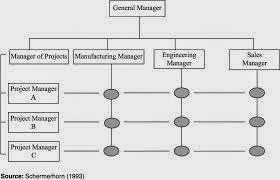Sectoral Dimension Of Nepalese Economy-Industry
1. Background
Industrialization
is taken as one of the most vital indicators of economic growth and prosperity
of the nation. Therefore, today's main necessity is to support
industrialization by establishing industries based on agriculture and local resources in rural sector and establishing
and developing industrial zones in urban areas. The government has promulgated
New Industrial Policy, 2009 to develop industrial sector and to provide
protection and facilities to the investors. It is expected to foster industrial
friendly environment in the country.
2. Objectives
·
To increase national
income and employment opportunities by increasing export of industrial product
through promotion of qualitative and competitive industrial production and
productivity.
·
To attract
domestic and foreign investment by creating strong investment
foundation through developing necessary productive manpower and managerial
capability for industrial development.
·
To increase
the contribution of industrial sector in achieving balanced regional
development and emphasize in maximizing the use of local resource, raw
materials, skill and means.
·
To create
productive self-employment by developing
entrepreneurship to backward, poor targeted group through micro
enterprises
3. Issues and
challenges
ü Though there are plenty of industrial development
potentialities in the country, the country is unable to tap adequate benefit
from this sector
o
Due to lack of appropriate managerial skills
and knowledge
o
No proper
substantial guarantee of industrial security
o
No appropriate
environment created for internal and external investment.
o
Inconvenient
environment caused hurdle in industrial development and lack of skilled
manpower, no diversification in exportable products
o
No adaptation of
new technology, minimum ability to adapt the technology affected to
productivity increment,
o
No implementation
of industrial friendly labor policy, irregular supply of electricity, mistrust
and misunderstanding between business owners and laborers are main hindrances
to industrial development.
o
Similarly,
scarcity of infrastructure in rural sector, inadequate access of micro
entrepreneur to the microfinance institutions,
o
Difficulty of
access to micro entrepreneur in forest-based resource, no clarity in legal
provisions, unavailability of appropriate technology for qualitative product,
weak forward linkages to market, lack of confidence of entrepreneurs, lack of
formal recognition of micro entrepreneurs to move forward in an organized way
etc. are main problems and challenges of micro enterprise sector.
o
In addition, difficult geographical structure, excessive competitive environment
created by globalization and economic
liberalization, increasing affordability in existing development of
information and communication technology to make industrial products more
qualitative and competitive seem great challenge
4. Strategy
o
Focus on physical
infrastructure, policies formulation and implementation necessary to small, medium and large industries that
have to be operated in nation.
o
Expand micro enterprise at the national level
by targeting poor and backward classes, and conflict-affected groups through using
credit facilities of microfinance institutions, extending market for
agricultural, non-timber forest and other natural resource, and utilizing
traditional skills.
o
Make industries
competitive and capable for maximizing the contribution of industrial
sector in national economy through appropriate means, resources and
facilities, production materials, energy, infrastructure and service delivery
by ensuring
necessary reforms in policies to improve investment environment.
o
Encourage non-resident Nepalese (NRN) to
invest in Nepal for the protection, diversification, and promotion
of foreign investment
5. Working Policy
v Industrial Manpower Development Academy under separate legal provision to unify various training centers to produce necessary
manpower and capacity improvement to industrial development will be
established.
v Present Industrial Zone Management Limited will be upgraded into national level Industrial Management Authority by a
separate law to operate necessary programs for promoting competitive capacity
of the industries established in the industrial zones by reforming management
of the industrial zones.
v A separate National
Productivity Council will be established by institutional strengthening of
the present National Productivity and Economic Development Center to work as
research, advisory, training and capacity development work for increasing the
productivity.
v A one point service center in the Industry Department
will be established to deliver facilities, concessions, and infrastructure
services made available by laws on timely manner without any difficulties. The
duty, responsibility and authority of the service center will be managed by
law.
v Improved industrial relation will be considered as strong basis of industrial
development for the increment of productivity. A flexible labor policy will be set
to establish a harmonious relation between employer and labor along with
implementation of worldwide accepted standards in social security for existing
working manpower with a view to creating and ensuring additional employment
opportunities.
v To support for extending relation of forward and
backward linkages in the production process, managerial alternatives will be
adopted in contract manufacturing, contract farming, agro-based industry,
franchising and ancillary buy back etc.
v To support for promoting, developing and extending of
the micro enterprises and cottage and small industries necessary legal provisions and institutional
framework and infrastructure will be made.
v Industrial Centers will be developed by establishing
community or cooperative, micro-enterprises, cottage and small
industrial-villages to provide enterprise development services to the
production oriented industries in the rural areas.
v Micro Enterprise Development Program, which is functioning to support reducing poverty, will be internalized and expanded.
v Gender balance, inclusion and involvement of the
youths of the conflict affected family will be emphasized to implement micro
enterprise development throughout the nation within the Plan period by developing capacity of implementing
institutions and supporting institutions and strengthening co-ordination
between the concerned entities.
v Micro enterprises for the targeted groups will be
upgraded on the basis of the access of
appropriate technology and the development
of value chain relation.
v Institutional and functional system will be modernized
through learning, research and consultation process to increase the productivity of micro and small industry sector
with the active participation of concerned institutions.
v The Cottage and
Small Industry Development Committee
will be included within the organizational structure of Micro Enterprise, Cottage and Small Industry Promotion Board to be
established for promotion, development, and expansion of micro, cottage and small
industry.
v Capacity building activities will be
implemented as a campaign for imparting industrial skill,
entrepreneurship, and managerial skill along with creating
self-employment and attracting creative youth entrepreneurs in industrial
business.
v The services provided by the Micro Enterprise, Cottage and Small Industry Fund at present will
be expanded and made effective.
v Legal and institutional arrangement
will be made to develop, manage and operate special economic zone and
infrastructure through government, public private partnership and the private
sector alone.
v The export-oriented
industry, industry that is established in special economic zone, industry in priority and the industries that
are established in least-developed, under-developed, and less-developed areas
will be given additional facilities and concessions as an incentive.
v Technical and financial assistance will be provided to those industries which uses
environment friendly technology in their own efforts and save energy.
v While formulating
and refining the macroeconomic policy, revenue policy, local tax and other
sectoral policy, system will be adopted that do not go against current
industrial policy. And while providing protection, facilities and concessions
to the industries, adjustments will be made with the provisions of multilateral
and regional agreements will be taken into consideration.
v To strengthen
industrial security system, industrial
security force will be formed and mobilized in an effective way.
v Necessary
arrangements will be made to solve
the problems related to the sick
industries and to identify, revitalize and reconstruct the sick industries
by arranging necessary provisions in the laws.
v With the
involvement of the private and cooperative sector, Investment Promotion Fund, Technology
Development Fund, Micro-enterprise Development Fund, Sick Industry
Revitalization Fund, and Industrial Investment Protection Fund (for
providing compensation to nonbusiness/non-commercial risks) will be established
and operated.
v The industries, which will uses local resources, raw
materials, skills, labors and technologies will be encouraged to establish and
operate.
v Necessary
institutional mechanism will be made and
activated to create an investment
friendly environment by making harmonious relation between the private and
the public sector.
v Non-residence
Nepalese will be encouraged to invest in
Nepal to protect, diversify and promote foreign investment.
v Industrial Investment Promotion Unit will be established as per requirement in the Nepali
Embassies or Missions abroad that contributes more direct foreign investment.
v No discrimination will be made between domestic and foreign investments except in the social protection
for the people living below the poverty line and backward areas and group, and positive discrimination adopted for
supplying necessary goods and services.
v Policy will be adopted that will not cut the facilities and concessions ensured by the prevailing system related to the Non-resident
Nepalese. And Non-resident Nepalese and Nepalese-origin foreigners who
have invested in Nepal will be
treated as foreign investment and facilities will be provided accordingly.


Comments